#huffpost personal
Text
I've spent 13 years on Tumblr (yikes!!) and by this point, it's so completely the norm for friends/mutuals to transition and post through it that I sometimes catch myself thinking "ugh, I'm gonna hate taking T :(" like the federal government is gonna assign me a new gender or something. I'm out here in one of those Christian girl tiktoks about the dangers of Woke, trying to draft dodge my bilateral mastectomy service
#between this and my obsession with huffpost personal essays#I've spent a statistically alarming amount of time trying to mentally prepare for my future as a medically complex geriatric pregnant father#with brain damage and a pill habit
26 notes
·
View notes
Link
I’ve seen a few things over the past couple of days about people in the service industry. (This article and someone telling a story about a semi-famous person being rude to a supermarket lady.) As someone who spent way too many years in service fields, I would say this article doesn’t even touch the depths of rudeness service people endure. When I am assessing someone else’s character, this is a major aspect that I factor in. If they are rude once during a special circumstance, like dealing with major life events, then that’s one thing. But if it is a continuous behavior to treat service people like they are less than or use them as your emotional punching bag, then that person isn’t someone that I would want to be around.
Another note about the article, I don’t know how you make it to 40 without working one service job. What did you do for money in college??
12 notes
·
View notes
Text
#empowerment#breakthrough#greatness#growth#wisdom#personal growth#personal development#self improvement#self empowerment#self awareness#personal mastery#jamelle sanders#thought leader#excellence#mastery#huffpost#huffingtonpost#success#growth mindset#inspiration#motivation
0 notes
Text
omg so this is just an existential ramble, pls feel free to skip past but the topic of "niceness" vs "kindness" is heavy on the mind today!! (take a shot every time i say "nice" or "kind" below lol)
i saw this tiktok about the queer eye drama that is going on right now (which i do not know much about bc i've skipped past most of it). it was about jvn and the basic premise was like "people whose brand is niceness are always doomed to fail" and in some respects i think that is true, because people conflate niceness with kindness, and misunderstand both.
to jank definitions from this huffpost article, "niceness" is "about being polite, civilized and demonstrating high levels of social skills and etiquette", whereas "kindness is a deliberate action of friendliness or care that chooses to see others as if they were connected to you in some meaningful way. it is a choice to practice empathy, connection and generosity to meet the needs of another.”
this is just a personal take but i think people see social performances of "niceness" and sort of like, unthinkingly build up an image in their head of someone as kind or good, when the things they do are nice but not actually indicative of true kindness.
(also let's skip past the "brand" wording for now bc i have a million thoughts on public-facing personas vs like, actual branding, and it all boils down to authenticity i think. but that's for another time.)
to me, people often conflate what i think of as the "aesthetic of niceness" with genuine goodness, and while the actions taken are nice in and of themselves and are usually undertaken with no ulterior motive, they do not actually correlate to true underlying kindness. we can pick apart me as an example, as people have said i am nice and i do try my best to be both nice & kind, but i think the following things are not indicative of how i actually try to be kind!
the "aesthetic of niceness" is a social performance taken at no expense to the person doing it. these are things like sending cute messages to mooties to check up on them (again, done because i like that person, not because i have some ulterior motive lol), being nice to people who are nice to me in my inbox (so easily done, who doesn't want to be nice to people who are being nice to them?), reblogging pictures of soup or bread or whatever lol and telling followers i am wishing u garlic bread, etc. because i genuinely am.
but to me, the real test of someone's kindness comes in at moments where it is hard to be nice. where the world is testing you and you have to grit your teeth and scrabble and claw for some semblance of generosity towards a person who is being unkind to you (and also i would like to distinguish this from boundary setting or from reacting to bigotry bc let's be real bigots sometimes do not deserve kindness, please let them have it).
it is easy to be nice when the world is being nice to you, but it is so fucking hard to give people the benefit of the doubt and react to them with empathy and patience when they are being the hugest shits in the world, whether on purpose or by accident. and i don't think any one person is capable of always, always managing their emotions in situations like that, and that is why i think "niceness" as a facet of your public persona is always going to fail at some point.
i am aware of some people who project niceness but have sent hate anons behind the scenes, or project niceness but have plagiarized some people's fics and feel no remorse for it. and people would be shocked to learn that, because they do not know the difference between being nice & being kind; and/or have never had the opportunity to observe these people behind the scenes to know truly what underlays that niceness.
anyway all of this to say i think that it's nice to be nice and we should continue to do it. but we should understand that niceness is not necessarily indicative of kindness, and that in order to really understand how "kind" a person is, you need to evaluate their actions when shit hits the fan. (but also with generosity of spirit, hopefully, knowing that one failure to be kind in a moment of high stress does not mean they not will be kind in others, etc.)
uhhhh that's all. that was just on the brain this morning. thanks for listening lol.
74 notes
·
View notes
Text
Sara Boboltz and Ryan Grenoble at HuffPost:
Michael Cohen, former personal attorney to Donald Trump, testified against the ex-president on Monday in his New York criminal hush money trial, corroborating claims of an extraordinary effort to silence stories that could be damaging to Trump in the days before the 2016 presidential election.
While Cohen has been cooperating with government prosecutors for several years, his appearance on the witness stand is an extraordinary moment in his long relationship with Trump — a man for whom Cohen once said he would “take a bullet.”
Under questioning from prosecutor Susan Hoffinger, Cohen described how he cajoled, aggressively bullied and outright lied to do whatever Trump asked of him.
“The only thing that was on my mind was to accomplish the task, to make him happy,” he said. “I did... what was needed in order to accomplish the task.”
When Trump first hired him, Cohen earned $525,000 a year doing things like calling vendors and renegotiating bills to a fraction of their original cost, or threatening media outlets over negative stories about his boss.
But as the 2016 election cycle progressed, Cohen’s role shifted. He started negotiating with National Enquirer executives, including publisher David Pecker, to conjure positive coverage for his boss.
At the same time, and with Trump’s explicit approval, Cohen bought the rights to negative stories through the Enquirer’s parent company, American Media Inc. The stories were then locked away in a scheme known as “catch and kill.”
Cohen said he was closely involved with hush money payments that prosecutors say were made during Trump’s 2016 campaign, including a $150,000 sum to former Playboy model Karen McDougal, who says she had a yearlong affair with Trump in the mid-2000s.
When he first heard about McDougal’s story, Cohen said he immediately went to Trump in person to warn him about the damage it could cause.
“His response to me was, ‘She’s really beautiful,’” he recalled. “I said, ‘OK, but there’s a story that’s right now being shopped.’” Cohen said Trump told him to “make sure it doesn’t get released.”
The two bought the rights to McDougal’s life story for $150,000, prompting a scramble to repay Pecker. As Trump delayed furnishing the funds, Cohen recalled having lunch with a “very” upset Pecker, who told him the sum was “too much to hide” from his parent company.
[...]
Cohen also spoke at length about how he orchestrated a hush money payment to adult film actor Stormy Daniels, who maintains that she had an affair with Trump in 2006. Daniels’ desire to make her allegation public knowledge during Trump’s 2016 campaign for the presidency set into motion the chain of events that led New York prosecutors to charge Trump with 34 counts of falsifying business records.
“Trump told me that he was playing golf with ‘Big Ben’ Roethlisberger... and they had met Stormy Daniels and others there,” Cohen recalled, adding that Trump expressed the sentiment “that women prefer Trump even over someone like Big Ben.” (Multiple women have accused Roethlisberger of sexual assault.)
Michael Cohen's testimony in the People of New York v. Trump trial could be a fatal blow for Donald Trump. #TrumpTrial
#Michael Cohen#Donald Trump#Stormy Daniels#Melania Trump#2005 Trump Access Hollywood Tape#People of New York v. Trump#Susan Hoffinger#National Enquirer#David Pecker#American Media Inc.#Karen McDougal/Donald Trump Affair
32 notes
·
View notes
Text
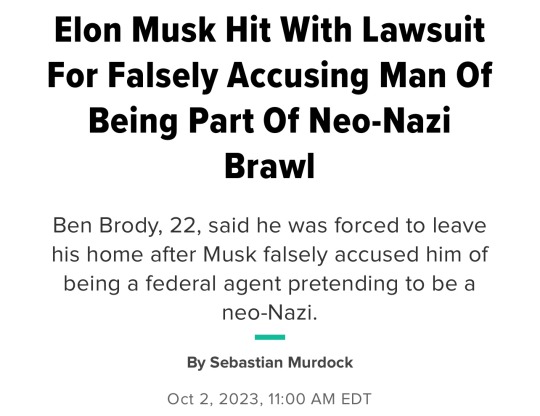
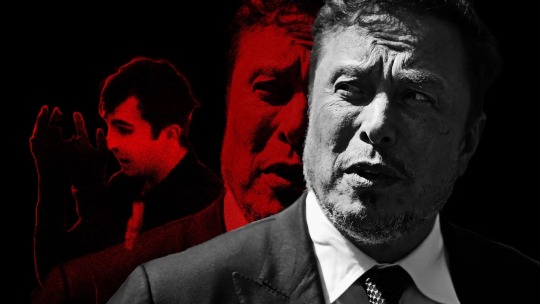

Elon Musk, the tech billionaire and far-right sympathizer, has been hit with a defamation lawsuit after he falsely accused a recent college graduate of being a federal agent involved with a neo-Nazi group.
Ben Brody, a 22-year-old Jewish man from California, filed the lawsuit against Musk on Monday after he said he and his family were forced to flee their home after continued harassment and threats after Musk promoted a dangerous conspiracy against Brody.
“In yet another example of Elon Musk’s serial pattern of slander, he falsely told the world that Ben Brody participated in a violent street brawl on behalf of a neo-Nazi extremist group,” the lawsuit, obtained by HuffPost, alleges.
The lawsuit centers around a fight between neo-Nazi group Rose City Nationalists (RCN) and neo-fascist group the Proud Boys that took place in Oregon earlier this year. In video footage that went viral, a member of RCN had his face mask pulled off, and internet sleuths went to work hoping to identify him.
But others dismissed the reality of far-right violence by falsely claiming members of the neo-Nazi group were actually federal agents. That included Musk, who amplified the false conspiracy that Brody was the man in the mask, then later suggested Brody was part of a “false flag situation,” in a post on X ― previously called Twitter ― that remains up today.
“Musk made these ridiculously false and damaging accusations based on a tweet he had seen from an anonymous far-right extremist Twitter account,” the lawsuit alleges. “After amplifying the claim for two days, Musk personally leveled these accusations against Ben Brody, and it has led to severe personal harassment and permanent damage to his reputation.”
(continue reading)
52 notes
·
View notes
Text

The first incident played out at an apartment complex in Richmond, Indiana, on the afternoon of June 30. Police say that Tommy Wayne Earl, 67, told them he looked out the window of his fourth-floor apartment and spotted Michelle Dionne Peacock, a neighbor he disliked, sitting at a gazebo with another person.
Earl told investigators he’d “had enough” and went out to confront Peacock with a straight razor, allegedly slicing her throat in such a way that she bled out before she could be moved from the scene, according to a detective’s sworn affidavit that was obtained by HuffPost.
In talks with investigators, Earl referred to the victim as “a male acting like a woman,” the affidavit said.
But Peacock was a 59-year-old cisgender woman.
Incidents like this are not new and will only continue to get worse as more and more transphobic bills get passed. Your transphobia hurts everybody. Your transphobia has the potential to kill anybody. And you sick fucks think that violence is acceptable simply because you do not understand how another person chooses to live. Grow the fuck up.
58 notes
·
View notes
Text
Have We Reached Peak Taylor Swift? The Psychology Behind When Someone Becomes Overexposed.
Is Taylor Swift about to be in her 'overexposed' era?
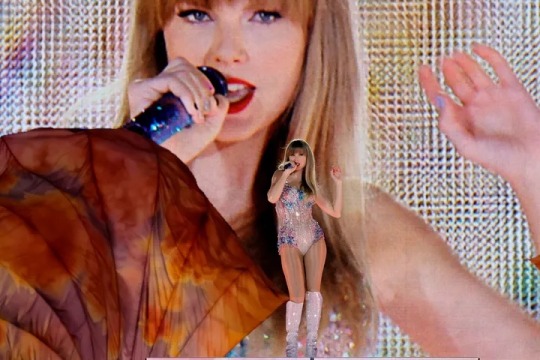
Midway through the Eras Tour, Taylor Swift is everywhere.
The ongoing tour ― Swift is scheduled to resume the international leg in November ― and the subsequent concert film are certifiable cultural events that have actually boosted regional economies. (In Los Angeles, for instance, where Swift performed six shows, the California Center for Jobs and the Economy predicted a $320 million boost to the county. No wonder Canada’s prime minister Justin Trudeau practically begged the Grammy winner to visit up north.)
She’s even bolstering the NFL’s viewership: Since the “Cruel Summer”
singer started attending her boyfriend Travis Kelce’s Kansas City Chiefs games, the league has seen some Super Bowl-level numbers thanks to all the Swifties tuning in.
Meanwhile, the media coverage is breathless. While daytime talk show hosts ask Kelce’s mom about Swift, there’s play-by-play of the couple’s dates around the web: “They were in a rounded booth sitting super close to each other in deep convo the whole time,” a diner at the Waverly Inn in Greenwich, where Swift and Kelce dined on Sunday, told The Messenger. “It looked super romantic and was super intimate.”
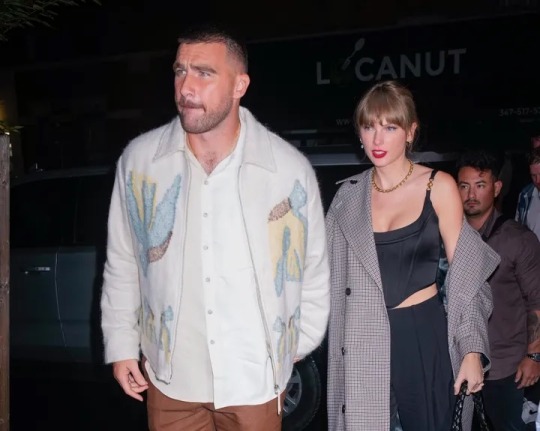
But given Swift’s cultural dominance ― and NFL fans booing an ad for her concert doc early this month ― even her fans are a little worried that Taylor fatigue might soon set in. Is Swift due for another “overexposed” era?
“Kinda overwhelmed by how close Taylor is to overexposure,” one fan tweeted on X.
“You either die the hero or live long enough to admit that you have Taylor Swift fatigue,” another wrote on the site.
On the main Swift subreddit, fans debate if Swift will eventually go back into pop star hibernation like she did after her “1989” album.
Indeed, this isn’t Swift’s first go-around with overexposure. The success of “1989” in 2014 was followed by a heightened interest in Swift’s personal life: her famous friends (or her “squad”), her ill-fated romance with Tom Hiddleston, her drama with Kanye West and Kim Kardashian. In response, Swift made a “conscious choice to disappear” and opt for a more “lowkey” life, a source close to the singer told People at the time.
Her rollout of her next album, 2017’s “Reputation,” was relatively quiet. (“There will be no further explanation. There will just be reputation,” Swift remarked on Instagram.)
Swift seems to pay close attention to her fandom and cultivate those parasocial relationships, said Lynn Zubernis, a psychologist and professor at West Chester University who researches fan psychology.
“Who knows, she might consider withdrawing from the spotlight again at some point,” Zubernis told HuffPost.
The professor likened the “Anti-Hero” singer’s ubiquity right now to Barney in the ’90s. Parents loved the purple dinosaur initially (no one kept their kids as entertained), but that love soured by the 104th listen of the “I love you, you love me” theme song.
“Familiarity is part of what drives fandom — we’re wired to attach to familiar faces, whether they’re offline or on our screens — but there’s a limit to how much repetition we can tolerate,” Zubernis said. “Too many instances of someone popping up and behaving the same way or saying the same thing can start to grate.”
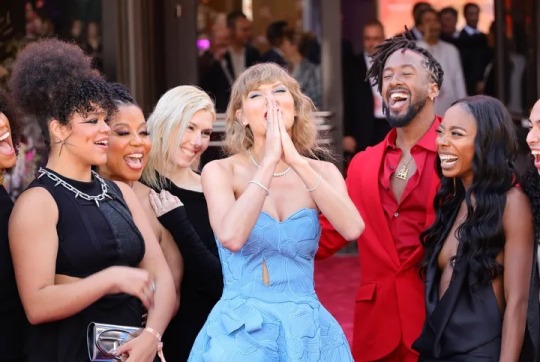
The overexposure is sometimes exacerbated by the celebrity being perceived as “trying too hard” or being inauthentic, Zubernis said: Miley Cyrus, Lindsay Lohan, Britney Spears, even Lady Gaga come to mind, she said.
“At first their ‘antics’ were popular, but people soon grew tired and cynical about them,” she said. “Justin Bieber, James Franco, Shai LaBeouf and Kanye West fall into that category too, and all have been on lists of ‘celebrities we’re tired of’ as a result.”
There’s also a common trajectory that fandom tends to take: Fans love to root for their favorite celebrity ― or sports team or TV series ― because of that vicarious sense of success they gain, but there’s also a cost to that success and visibility, Zubernis said. Some fans jump ship.
“Fans also relish feeling ‘special’ and seeing their fandom as exclusive ― as in, we are the only ones who see how truly special this person is and appreciate her,” the professor said.
“Once someone like Swift becomes beloved by everyone, even ‘normies,’ the fandom doesn’t feel as exclusive anymore,” she added. (Think how in high school, you used to say, “Yeah, I liked that band when they were still underground.”)
Jaye L. Derrick, an associate professor of psychology who studies parasocial relationships at the University of Houston, has a different take: She thinks that most of the people complaining about Swift were never fans to begin with.
“She has a very large following, but no celebrity can make 100% of the population like them,” Derrick told HuffPost.
“As Taylor Swift is shown to new markets, she is meeting some pushback from people who may have been aware of her before but never sought her out,” she said. “I suspect that most of the negative exposure is from people who had maybe consciously avoided her before and are not able to avoid her anymore.”
Tracy Gleason, the chair and professor of psychology at Wellesley College and an author of a paper on parasocial relationships, agrees with Derrick. The fans at the Giants game who booed her ad, for instance, might have done so because she’s dating a player on a rival team.
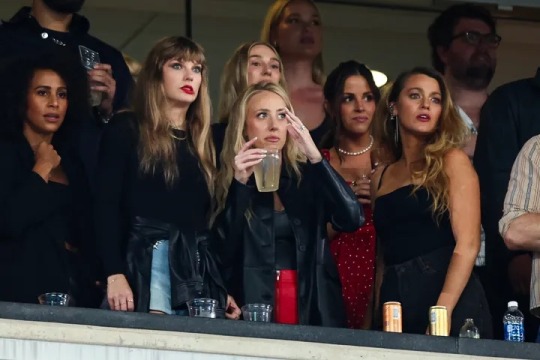
“Another possible explanation for the football game is that people who are fans of football, some of whom are likely women, are not necessarily fans of Taylor Swift,” Gleason told HuffPost. “Seeing Taylor get more attention than the game itself might have felt distracting and annoying.”
“Who knows, though,” she added. “Maybe they are Swifties but just want to keep each of the things they enjoy in their own lane: Taylor belongs on the stage and football belongs in the arena.”
Is misogyny at play when we deem someone “overexposed”?
When it comes to conversations about fame, some have pointed out that it tends to be women that get the whiplash “love-hate” treatment: They’re celebrated at first, then they’re deemed overexposed, like Anne Hathaway or Jennifer Lawrence were after their respective Oscar campaigns.
For the most part, men have more room to navigate fame: There’s a double-standard for the type of behavior that is considered appropriate for men versus for women, Derrick said.
For starters, men are expected to express their agency, so they are allowed to promote their projects.
“For women, it is harder to engage in agentic behavior without people viewing them as too in-your-face,” Derrick said. “In American society, we traditionally expect women to be more communal and less agentic.” (Swift addresses this complicated bind for women in the song “The Man” from 2019 album “Lover.”)
The professor thinks these women would probably get a pass if they were “trying too hard” to promote something communal, like a charity, but over-promoting yourself is a cardinal sin in celebritydom if you’re a woman.
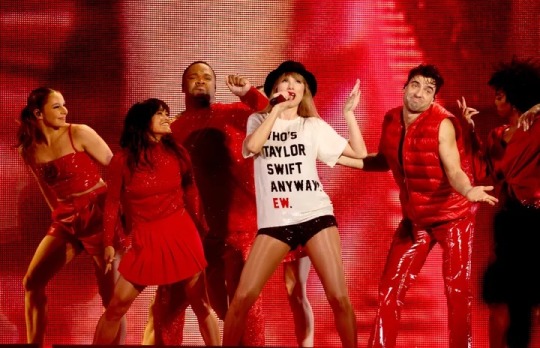
With male examples of overexposure, it usually results from some publicly frowned-upon behavior: Bieber was a notoriously bratty teen (which is hardly a crime, of course, but his reputation persists), West was accused of antisemitism, Franco and LaBeouf were both accused of sexual misconduct, and Elon Musk has been accused of not only damaging Twitter (or as he’s rebranded, X) but threatening democracy itself.
Women celebrities are shamed for bad behavior, too, of course, but also for deviating from social expectations, Zubernis said.
“The culture still isn’t all that comfortable with women being very visible or powerful or successful in some way; that idea is vaguely threatening to the status quo,” she said. “I think that would apply to Swift, Hathaway and Lawrence.”
If you were a fan of any of those women to begin with, though, you probably stuck by them through and through. Fandoms tend to be ride or die until something truly cancellable happens.
“There are times when fans will turn on a celebrity, but those are usually cases where the celebrity did something out-of-character that led people to become disillusioned with their brand,” Derrick said.
In other words, when it comes to these “overexposed” claims ― or criticism from non-fans who wish Swift would take a sabbatical ― Swifties worldwide are probably just going to “shake it off.”
ts1989fanatic:
So Michael Jackson in his prime was everywhere and until he went off the deep end was beloved by fans and none fans worldwide. But Taylor Swift who has in my opinion reached MJ status is over exposed, you know this was not really a thing until she started dating Travis Kelce.
So to answer the question posed above
Is misogyny at play when we deem someone “overexposed”?
In the case of Taylor Swift damn straight misogyny is at play, all these talking heads and college professors and the rest of the media jackals and TS haters need to just FUCK THE HELL OFF.
35 notes
·
View notes
Text
Complicit in War Crimes
US trying to persuade Switzerland to waive Geneva Conventions for Israel in Gaza
U.S. diplomats are finalizing a diplomatic initiative to their Swiss counterparts that Washington hopes will scuttle plans for a meeting to discuss violations of the Geneva Conventions in the current war between Israel and Hamas, the Gaza-based militant group, according to State Department documents seen by HuffPost.
The revelation comes as the U.S. is simultaneously slow-rolling the most high-profile international attempt to ease suffering in Gaza: a United Nations Security Council resolution that would drastically increase the flow of humanitarian aid into the besieged strip…
Palestinian diplomats and a significant group of U.N. member states, including some European nations allied with the U.S., are preparing a call for Switzerland to launch such a conference focused on the fighting on Israel-Palestine that would cover Geneva Conventions violations by all parties, according to the State Department documents and a person familiar with the Palestinian effort.
Despite global public opinion abhorring Israel’s constant war crimes against Palestinian civilians in Gaza and the West Bank, the US is determined to keep Israel unaccountable for its actions.
#war crimes#war criminals#genocide#apartheid#israel#west bank#gaza#palestine#geneva conventions#united states#us#icc#international criminal court#international politics#united nations#2024#2023
21 notes
·
View notes
Text
Richard Hanania is still bugging me.
He is a right-wing intellectual who recently wrote a book called "The Origins of Woke: Civil Rights Law, Corporate America, and the Triumph of Identity Politics".
The Amazon blurb says,
"For those angry about wokeness and what it has done to American institutions, this book offers concrete suggestions regarding policies that can move us back to being a country that emphasizes merit, individual liberty, and color-blind governance."
Anyway, in August of 2023, the Huffington Post broke the story that in the teens, he wrote online under the pen name "Richard Host"
Richard Hanania, a visiting scholar at the University of Texas, used the pen name “Richard Hoste” in the early 2010s to write articles where he identified himself as a “race realist.” He expressed support for eugenics and the forced sterilization of “low IQ” people, who he argued were most often Black. He opposed “miscegenation” and “race-mixing.” And once, while arguing that Black people cannot govern themselves, he cited the neo-Nazi author of “The Turner Diaries,” the infamous novel that celebrates a future race war.
Hanania has admitted that the Huffpost story is correct.
Even five years ago, the media could set the narrative, tell people what was important, and how they should react to any particular story. We appear to be moving past the worst of the cancellation trend. Most outside of a certain echo chamber realize this kind of reporting is contemptible. The goal is not to engage with ideas, but to simply silence a person and remove them from polite company. To not have to discuss their ideas on account of other ideas they put forward at a different time of their life and which they may no longer even believe in.
Man, good thing cancel culture has been rejected, so that saying,
“We’ve known for a while through neuroscience and cross-adoption studies... that individuals differ in their inherent capabilities. The races do, too, with whites and Asians on the top and blacks at the bottom,” Hoste wrote in the 2010 essay, titled “Why An Alternative Right Is Necessary.”
“If the races are equal,” Hoste wrote, “why do whites always end up near the top and blacks at the bottom, everywhere and always?”
Is absolutely no obstacle to becoming a respected scholar of civil rights.
Wait a second... I'm not sure we've landed at the correct equilibrium.
Hanania is not a guy who makes TikTok videos about fancy cakes but said some unrelated objectionable things 15 years ago.
He is an author and the founder of a right-wing think tank who hopes to, and probably does, have significant influence on the direction of conservative ideas about civil rights law. His views on civil rights are directly related to his job.
Especially if, like, he was just actively lying to people about how he came to his conclusions as recently as may of this year
Here's an excerpt from a speech Hanania gave to the Yale Federalist Society on April 3 of 2023:
I’m glad to be here talking about woke institutions and civil rights law. I have to say, I was ahead of the curve on this issue. It’s something I’ve been thinking about since I was in law school. I graduated from the University of Chicago in 2013, and my 1L summer I worked for an organization called the Center for Individual Rights, which argued the Gratz and Grutter cases.
And I learned a lot while working there about how government forces institutions to be conscious of race and sex. So, for the last decade, from 2011 on, as I was doing other things in life, I would talk to people about all these things government did to discriminate against whites and men, remove standards, get rid of standardized tests, etc. And one reason I was so passionate about this is that a lot of the fixes did not require legislation. Executive orders and judicial decisions are enough. But the Trump administration came and went, the Supreme Court got more conservative, and still nobody was listening to me.
So finally I started writing on this topic myself, and now that I’m writing for the public instead of just trying to convince people one-on-one, I’m getting a better return on my efforts. Another reason what I’ve been arguing has caught on is that we saw the transformation in how institutions talk about race- and sex-related issues over the last decade. A lot of people are looking for answers. Who are these diversity bureaucrats saying all these crazy things? How did we end up with so many of them and where did they come from? And all this stuff that was more latent, of interest to legal nerds only in 2011, became much more part of the culture.
In 2010 Hanania wrote:
“The biggest enemies of the Black Man are not Klansmen or multinational corporations, but the liberals who have prevented an honest appraisal of his abilities and filled his head with myths about equality and national autarky,”
I'm not just trying to gratuitously point out how awful the things Hanania said were:
I am pointing out that he just lied, blatantly, about the very field he is supposed to be an expert in.
And that's not something that happened years ago when he was just a law student, that's something he did this year.
Hanania knows that this stuff was not "latent, of interest only to legal nerds" back in 2011, because by then he had already spent years embedded in a subculture that was deeply concerned about this kind of thing. Nor, for that matter, was he simply, "trying to convince people one-on-one". He was writing under a pseudonym for numerous far-right websites.
And honestly, at this point the question is just "How much of this speech is a lie" but if less of it is a lie, than it looks way worse for Hanania.
When he joined the Center for Individual Rights he wasn't 15 years out from writing all that racist stuff, he was 3 years out. How much of it did he still believe? When he was an active racist back in law school, was he still planning on joining the Center for Individual Rights?
If the answer is yes, and the actions of a blatant racist and the "classical liberal" he has now become are essentially identical, then, uh, I'm sorry, but that seems like the kind of thing that might be a pretty important part of the story of wokeness.
If the answer is "No" then, well, we're still left with the fact that he just blatantly lied about how and why he reached his current conclusions. This story of someone who had a vague, wonkish interest in something obscure but just had to speak up when he realized it was getting out of control in the teens is an utter lie.
This is a man who has told very self-serving lies about how and why he has reached the conclusions that he has, lies that are designed to leave out crucial parts of any honest appraisal of wokeness, and who kept telling those lies until he was unable to get away with it, up to this year.
I think his willingness to lie about his own supposed field of expertise in order to sell books is pretty damning in itself, and that didn't happen 15 years ago, that happened this year.
28 notes
·
View notes
Text
#empowerment#breakthrough#greatness#growth#wisdom#personal growth#personal development#self improvement#self empowerment#self awareness#personal mastery#jamelle sanders#thought leader#excellence#mastery#huffpost#success#inspiration#motivation
1 note
·
View note
Text
Whether you're a student, a journalist, or a business professional, knowing how to do high-quality research and writing using trustworthy data and sources, without giving in to the temptation of AI or ChatGPT, is a skill worth developing.
As I detail in my book Writing That Gets Noticed, locating credible databases and sources and accurately vetting information can be the difference between turning a story around quickly or getting stuck with outdated information.
For example, several years ago the editor of Parents.com asked for a hot-take reaction to country singer Carrie Underwood saying that, because she was 35, she had missed her chance at having another baby. Since I had written about getting pregnant in my forties, I knew that as long as I updated my facts and figures, and included supportive and relevant peer-reviewed research, I could pull off this story. And I did.
The story ran later that day, and it led to other assignments. Here are some tips I’ve learned that you should consider mastering before you turn to automated tools like generative AI to handle your writing work for you.
Find Statistics From Primary Sources
Identify experts, peer-reviewed research study authors, and sources who can speak with authority—and ideally, offer easily understood sound bites or statistics on the topic of your work. Great sources include professors at major universities and media spokespeople at associations and organizations.
For example, writer and author William Dameron pinned his recent essay in HuffPost Personal around a statistic from the American Heart Association on how LGBTQ people experience higher rates of heart disease based on discrimination. Although he first found the link in a secondary source (an article in The New York Times), he made sure that he checked the primary source: the original study that the American Heart Association gleaned the statistic from. He verified the information, as should any writer, because anytime a statistic is cited in a secondary source, errors can be introduced.
Dive Into Databases
Jen Malia, author of The Infinity Rainbow Club series of children’s books (whom I recently interviewed on my podcast), recently wrote a piece about dinosaur-bone hunting for Business Insider, which she covers in her book Violet and the Jurassic Land Exhibit.
After a visit to the Carnegie Museum of Natural History in Pittsburgh, Pennsylvania, Malia, whose books are set in Philadelphia, found multiple resources online and on the museum site that gave her the history of the Bone Wars, information on the exhibits she saw, and the scientific names of the dinosaurs she was inspired by. She also used the Library of Congress’ website, which offers digital collections and links to the Library of Congress Newspaper Collection.
Malia is a fan of searching for additional resources and citable documents with Google Scholar. “If I find that a secondary source mentions a newspaper article, I’m going to go to the original newspaper article, instead of just stopping there and quoting,” she says.
Your local public library is a great source of free information, journals, and databases (even ones that generally require a subscription and include embargoed research). For example, your search should include everything from health databases (Sage Journals, Scopus, PubMed) to databases for academic sources and journalism (American Periodical Series Online, Statista, Academic Search Premier) and databases for news, trends, market research, and polls (the Harris Poll, Pew Research Center, Newsbank, ProPublica).
Even if you find a study or paper that you can’t access in one of those databases, consider reaching out to the study’s lead author or researcher. In many cases, they’re happy to discuss their work and may even share the study with you directly and offer to talk about their research.
Get a Good Filtering System
For journalist Paulette Perhach’s article on ADHD in The New York Times, she used Epic Research to see “dual team studies.” That's when two independent teams address the same topic or question, and ideally come to the same conclusions. She recommends locating research and experts via key associations for your topic. She also likes searching via Google Scholar but advises filtering it for studies and research in recent years to avoid using old data. She suggests keeping your links and research organized. “Always be ready to be peer-reviewed yourself,” Perhach says.
When you are looking for information for a story or project, you might be inclined to start with a regular Google search. But keep in mind that the internet is full of false information, and websites that look trustworthy can sometimes turn out to be businesses or companies with a vested interest in you taking their word as objective fact without additional scrutiny. Regardless of your writing project, unreliable or biased sources are a great way to torpedo your work—and any hope of future work.
For Accuracy, Go to the Government
Author Bobbi Rebell researched her book Launching Financial Grownups using the IRS’ website. “I might say that you can contribute a certain amount to a 401K, but it might be outdated because those numbers are always changing, and it’s important to be accurate,” she says. “AI and ChatGPT can be great for idea generation,” says Rebell, “but you have to be careful. If you are using an article someone was quoted in, you don’t know if they were misquoted or quoted out of context.”
If you use AI and ChatGPT for sourcing, you not only risk introducing errors, you risk introducing plagiarism—there is a reason OpenAI, the company behind ChatGPT, is being sued for downloading information from all those books.
Historically, the Loudest Isn’t the Best
Audrey Clare Farley, who writes historical nonfiction, has used a plethora of sites for historical research, including Women Also Know History, which allows searches by expertise or area of study, and JSTOR, a digital library database that offers a number of free downloads a month. She also uses Chronicling America, a project from the Library of Congress which gathers old newspapers to show how a historical event was reported, and Newspapers.com (which you can access via free trial but requires a subscription after seven days).
When it comes to finding experts, Farley cautions against choosing the loudest voices on social media platforms. “They might not necessarily be the most authoritative. I vet them by checking if they have a history of publication on the topic, and/or educational credentials.”
When vetting an expert, look for these red flags:
You can’t find their work published or cited anywhere.
They were published in an obscure journal.
Their research is funded by a company, not a university, or they are the spokesperson for the company they are doing research for. (This makes them a public relations vehicle and not an appropriate source for journalism.)
And finally, the best endings for virtually any writing, whether it’s an essay, a research paper, an academic report, or a piece of investigative journalism, circle back to the beginning of the piece, and show your reader the transformation or the journey the piece has presented in perspective.
As always, your goal should be strong writing supported by research that makes an impact without cutting corners. Only then can you explore tools that might make the job a little easier, for instance by generating subheads or discovering a concept you might be missing—because then you'll have the experience and skills to see whether it's harming or helping your work.
18 notes
·
View notes
Text
Five Tips for Memoir Writing When the Words Feel Too Hot to Touch

Memoir writing can be powerful, but often times, requires the writer to look back on difficult times in their lives. NaNo Participant Emily Henderson talks about her own experiences with memoirs and gives tips on navigating painful experiences.
Content Warning: Death of a child to cancer.
I've been working on a memoir for what feels like 1000 years. In the beginning, I wrote about how, by the time I was 18, I lost both of my parents, one to a plane crash and the other to breast cancer. I wrote about my descent into alcoholism and eventual path to sobriety. I wrote about marriage and motherhood, all against the backdrop of my love for running. I thought this would be my memoir.
But then, in 2019, my youngest son Aiden was diagnosed with brain cancer, and four months later, he was gone. Suddenly, the memoir I had in my mind no longer made sense, and I stopped writing. It wasn't until the pandemic that I returned to journaling and running to process my grief. I decided to run every street in my city, and thus a new shape for my memoir began to form.
In 2021, I threw my hat in the NaNoWriMo ring. I began knowing how hard it would be to write about my son and all the trauma surrounding his death. I wanted to protect my mental health while I tried to put words into the most painful moments of my life. Below are a few strategies I employed to help me win NaNo.
1. Gather Source Material
I re-read old journals, blog posts, and social media posts. I highlighted different themes and organized them into sections. For instance, I marked scenes from my childhood and those about my son with different colored highlighters. The idea is to avoid getting lost in memories when the focus should be on writing.
2. S.O.S. Journal Prompts
On days when the words just aren't flowing, I like to have a few journal prompts handy. I write them down on index cards and pull them out when I get stuck. I made some of my biggest writing breakthroughs with these prompts.
“The doctor said….”
“On a good day….”
“At my age….”
3. Change your entry point.
I wrote around and around the scene where my son dies, possibly trying to change the ending, but I couldn’t seem to get it right. Rather than bang my head against the wall, I came at it from a different angle. I wrote about my husband and how our marriage grew stronger through our son's treatment. Then when it came time to write the worst moment of my life, where my husband and I hold each other as we say our final goodbyes, I felt more relaxed and confident that I could do the scene justice.
4. Write a rant.
I have a lot of anger around the loss of my son, and I find writing a long rant about how unfair it all is, helps to clear the cobwebs to find the truth in the narrative. I like to set a timer for 20 minutes and write nonstop, even if all I write is, “I miss my son,” over and over again.
5. Non-judgmental social support
Writing about trauma is emotionally draining, and I knew I would need to decompress after tapping into the harder parts of my story. I scheduled lunch with close friends with whom I could talk openly. They often made connections I couldn’t see, and that led to even more writing breakthroughs.
Once again, life keeps happening, and in January, I gave birth to my fourth child. She is next to me as I write this, cooing and grunting while she sleeps. It seems my memoir has shifted once again, and I have a perfect epilogue to my story.

Emily Henderson is a freelance writer living with her family in Santa Barbara, CA. Her essays have appeared in HuffPost Personal, Scary Mommy, Writing Class Radio, and The Santa Barbara Independent. She is currently working on a memoir about processing the loss of her son while running every street in her city.
You can read more of Emily’s writing on her Substack, I’m Really Very Literary, or follow her on Instagram @emilykathleenwrites or visit emilykathleenwrites.com.
Photo by Carli Jeen on Unsplash
75 notes
·
View notes
Text
David Smith at The Guardian:
Joe Biden has shown no mercy to Donald Trump with a series of barbed jokes about his election rival, telling a gathering of Washington’s political and media elites: “I’m a grown man running against a six-year-old.”
The White House Correspondents’ Association (WHCA) dinner on Saturday night provided the ideal platform for Biden to continue a recent run of taking the fight to Trump with more aggressive rhetoric, cutting humour and personal insults.
But the jovial mood inside the room contrasted sharply with raucous demonstrations outside the Washington Hilton hotel. Hundreds of protesters shouted “Shame on you!” at White House officials, journalists and celebrities as they arrived at the dinner, condemning Biden’s handling of the war in Gaza and the media’s coverage of it.
As speculation about a debate between the two men intensifies, Biden – wearing tuxedo and black tie – opened his roast with a direct but joking focus on Trump, calling him “sleepy Don”, in reference to a nickname Trump had given the president previously.
“The 2024 election is in full swing and yes, age is an issue,” noted Biden, 81. “I’m a grown man running against a six-year-old.”
The president also skewered Trump over a recent speech in which he described the civil war battle at Gettysburg as “interesting, “vicious”, “horrible” and “beautiful”. Biden said: “Speaking of history, did you hear what Donald just said about a major civil war battle? ‘Gettysburg – wow!’ Trump’s speech was so embarrassing, the statute of Robert E Lee surrendered again.”
Biden then made a reference to Trump’s falling out with his former vice-president, Mike Pence, who defied him over the 2020 election result. The president said: “Age is the only thing we have in common. My vice-president actually endorses me.” Vice-president Kamala Harris, sitting nearby on stage, laughed and applauded.
The president moved on to Trump’s criminal trial in New York, where he is accused of falsifying business records to cover up a hush money payment to adult film performer Stormy Daniels. Biden said: “Donald has had a few tough days lately. You might call it Stormy weather.”
And then he brought up Trump’s new scheme to sell “God Bless the USA Bibles” for $59.99. “Trump’s so desperate he started reading those Bibles he’s selling. Then he got to the first commandment: ‘You shall have no other gods before me.’ That’s when he put it down and said: “This book’s not for me’.”
Biden also poked fun at his own age and delivered some one-liners at the expense of the media. “Some of you complained that I don’t take enough of your questions. No comment.”
President Joe Biden delivered a masterclass at last night's WHCD, including quips about "stormy weather" in reference to Stormy Daniels and naming Donald Trump "Sleepy Don" and referring to him as a "six-year-old."
See Also:
HuffPost: 'Rise Up': Biden Issues Urgent Call On Trump Threat At White House Correspondents' Dinner
#Joe Biden#Donald Trump#WHCD#2024 WHCD#White House Correspondents Dinner#Nerd Prom#People of New York v. Trump#Stormy Daniels#Colin Jost
43 notes
·
View notes
Text
Hi everyone,
I found an article from HuffPost talking about some of the signs of autism in adults. The article lists the following:
A Feeling Of Being ‘Different’ From Others
Difficulty With Social Cues
A Confusing Relationship History — Both Romantically Or Platonically
Sensory Differences
A Desire For Routine
A Need For Solitude
More Intense Interests
A Dislike Of Small Talk
A Desire For Direct Communication
The full article goes further into these. I’ll leave the link below so you can check it out if you’d like. I hope many of you find this helpful.
Autism
#autism#actually autistic#autism in adults#signs of autism in adults#autism spectrum#feel free to share/reblog#if you’re neurodivergent feel free to reblog#source: HuffPost
54 notes
·
View notes
Text
An article talking about Israeli propaganda, with some excerpts below. I recommend reading the article, as it details some of the propaganda itself.
"To pay attention to Israeli propaganda in recent weeks is like watching a magic trick done by an inept conjurer who constantly lets the audience see the mirrors and wires that are supposed to create optical illusions. [...]
Joe Biden is clearly willing to back whatever Israel does, including indiscriminate bombing and other war crimes. The American media is also complicit. As HuffPost has documented, CNN has a habit of airing IDF videos with false information (including the calendar fiasco). Then, when the errors are pointed out, these same videos are carefully edited to delete the falsehood when placed online, without an editorial note explaining or acknowledging what was cut. In effect, CNN is the IDF’s partner in propaganda. [...]
Sadly, the fact that the [American] public isn’t buying Israel’s campaign of lies counts for little. Foreign policy is made by elites. Biden and the US Congress are still firmly behind Israel. Even if Joe Biden is the only person on earth who really believes Israel’s propaganda, that is more than enough to make it successful."
(Emphasis/bolding mine)
#palestine#current events#happened upon this article kinda by chance but i found it to be insightful#especially the bit at the end
17 notes
·
View notes